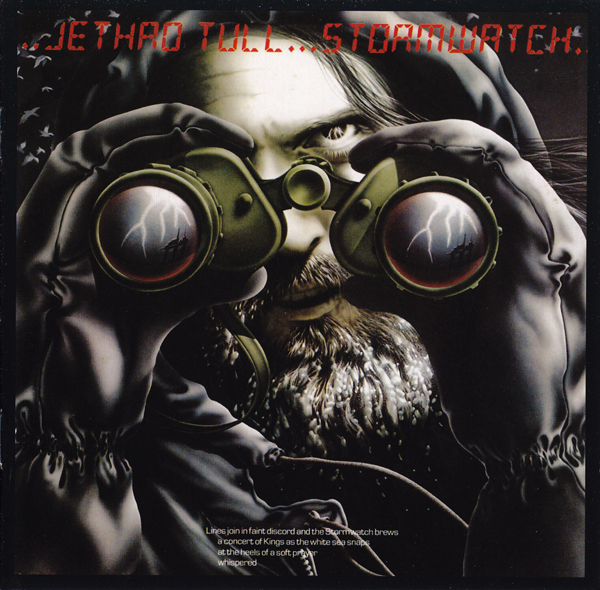|
|
|
01 |
North Sea Oil |
|
|
|
03:12 |
|
|
02 |
Orion |
|
|
|
03:58 |
|
|
03 |
Home |
|
|
|
02:46 |
|
|
04 |
Dark Ages |
|
|
|
09:13 |
|
|
05 |
Warm Sporran |
|
|
|
03:33 |
|
|
06 |
Somethings On The Move |
|
|
|
04:27 |
|
|
07 |
Old Ghosts |
|
|
|
04:23 |
|
|
08 |
Dun Ringill |
|
|
|
02:41 |
|
|
09 |
Flying Dutchman |
|
|
|
07:46 |
|
|
10 |
Elegy |
|
|
|
03:38 |
|
|
11 |
A Stitch In Time |
|
|
|
03:40 |
|
|
12 |
Crossword |
|
|
|
03:38 |
|
|
13 |
Kelpie |
|
|
|
03:37 |
|
|
14 |
King Henry's Madrigal |
|
|
|
03:01 |
|
|
|
| Country |
United Kingdom |
| Packaging |
Jewel Case |
| Spars |
DDD |
| Sound |
Stereo |
|
| Drums and Percussion |
Barriemore Barlow |
| Acoustic Guitar |
Ian Anderson |
| Acoustic Guitar |
Martin Barre |
| Bass Guitar |
Ian Anderson |
| Guitar-Electric |
Martin Barre |
| Mandolin |
Martin Barre |
| Organ |
David Palmer |
| Organ |
John Evan |
| Piano |
John Evan |
| Synthesizer |
David Palmer |
| Vocals |
Ian Anderson |
| Flute |
Ian Anderson |
|
|
Stormwatch marked the end of an era in Jethro Tull's history, as the last album on which longtime members Barriemore Barlow, John Evan, and David Palmer participated, and the final appearance of bassist John Glascock, who played on three of the cuts (Anderson supplied the bass elsewhere) and died following open-heart surgery a few weeks after its release. Anderson's inspiration seemed to be running out here, his writing covering environmental concerns ("North Sea Oil") and very scattershot social topical criticism ("Dark Ages"). The fire is still there in some of the hard rock passages, especially on "Dark Ages," but most of the songs generally lack the craftsmanship and inspiration of such albums as Minstrel in the Gallery or Heavy Horses, much less Aqualung. Just when "Something's on the Move" seems like it could be the most tuneless track in Tull's history, "Old Ghosts" and "Dun Ringill" follow it with even less memorable melodic material. The latter, in particular, proved that Anderson's well of folk-inspired tunes was also running dry, apart from the instrumental "Warm Sporran".
